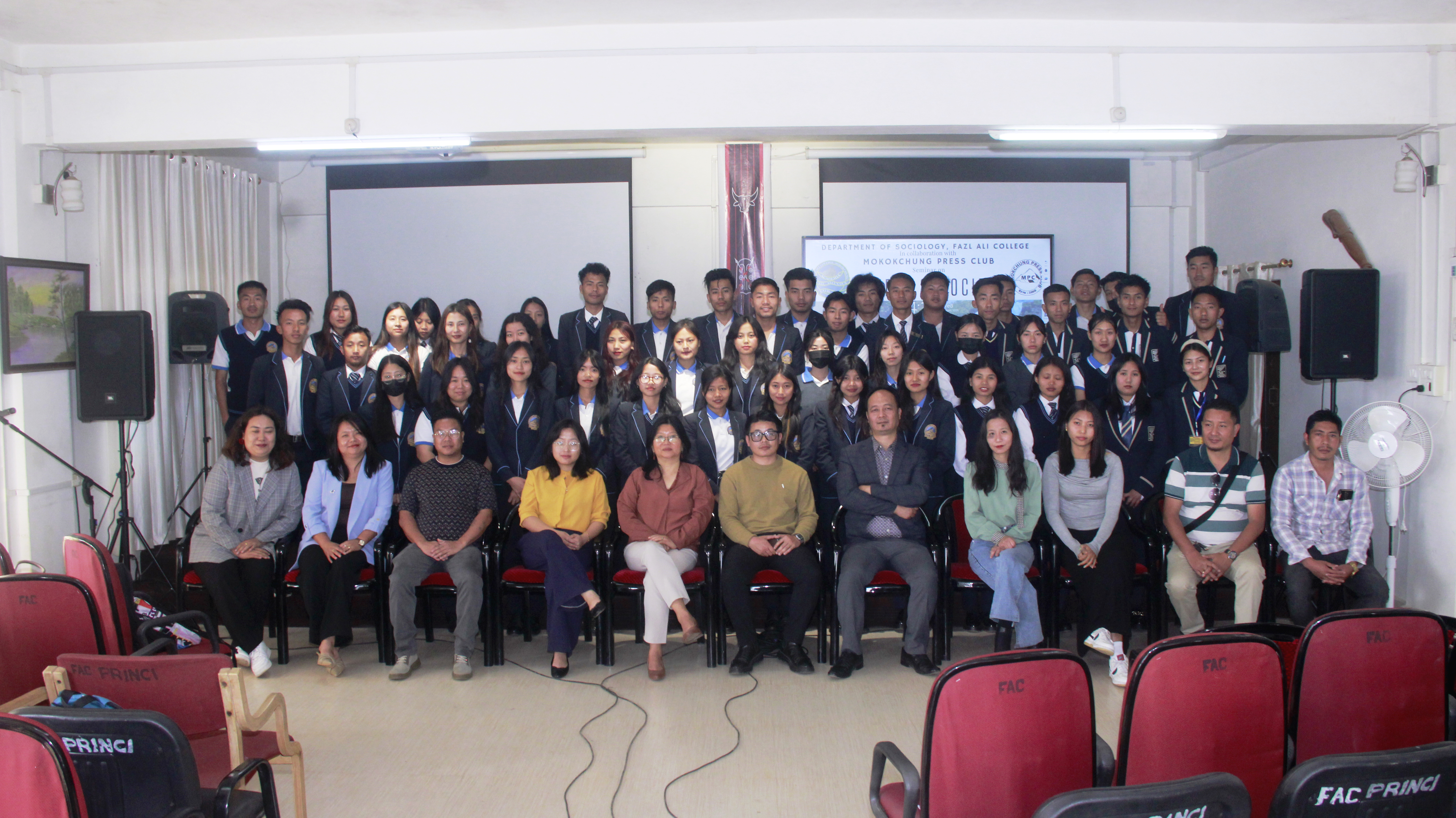TUESDAY, APRIL 29, 2025
- Home
- Seminar explores media’s profound impact on society
Seminar explores media’s profound impact on society
Published on Apr 9, 2025
Share

Members of MPC along with the faculty and students of FAC and Jubilee Memorial College after the seminar at FAC conference hall on Wednesday.
- MOKOKCHUNG — The Sociology department of Fazl Ali College (FAC), in collaboration with the Mokokchung Press Club (MPC), hosted a thought-provoking seminar titled "Media and Society" on Wednesday at the college’s conference hall.
- Attended by students from FAC and Jubilee College, the event highlighted the transformative power of media with Limalenden Longkumer, president of MPC and Editor of Mokokchung Times, delivering a compelling keynote address on "Media and its impact on community."
- Longkumer began his address by emphasising the media's pervasive influence, stating, “The way you think, the way you see the world, your ideology—whether you realise it or not—has been shaped by what media has shown you. And that is powerful.”
- He delineated the distinct roles of global, national and local media, noting that while global and national outlets expose audiences to the wider world, state and local media serve as a mirror reflecting daily realities.
Also read: Fazl Ali College to host Viksit Bharat Youth Parliament
- In Nagaland, he argued, this mirror reveals stark truths: unemployment, corruption, suppression of free speech, misuse of customary laws and a troubling “culture of apology letters.”
- “Local media brings these issues to light—issues ignored by broader platforms,” he said, underscoring its unique role in rooting influence within cultural contexts and community needs.
- Beyond merely reflecting society, Longkumer highlighted the media's capacity to drive change.
- He cited tangible examples: when local media exposes corruption in churches, it shatters taboos around critiquing leadership; when it champions entrepreneurship, it redefines respectability beyond government jobs; and when it warns against over-reliance on public sector employment, it awakens youth to the need for innovation and a diversified economy.
- “This didn’t happen by accident—it happened because someone used the media effectively to raise awareness,” he asserted.
- Longkumer challenged the audience to wield this power responsibly.
- “If you use the media to spark healthy discussions, highlight critical issues and push for reform, you can shape a better society. But if you perpetuate toxic trends or cover-ups, that’s what we’ll stay stuck with,” he cautioned.
- Addressing the Sociology students directly, he reframed them not just as consumers but as potential creators of media narratives.
- “By the truths you highlight and the ideas you champion, you can either move society forward or hold it back,” he said, urging them to leverage their understanding of power systems, culture and communication.
- Concluding with a call to action, Longkumer posed provocative questions for students to explore through media such as ‘Why does Naga society cling to superstition? Why does corruption go unpunished while integrity languishes? How can tribalism and parochialism be overcome? Does religion hold social value if its teachings are ignored? Why do scientific inquiry and critical thinking lag in Naga society?’
- “Sociology offers insights into our problems and solutions. If you investigate these questions and share your findings through the media, this seminar will have been a success,” he said, leaving the audience with a challenge to shape the narrative.
- The seminar underscored the media's dual role as a mirror and a catalyst, igniting discussions on its potential to transform Nagaland’s social landscape.

